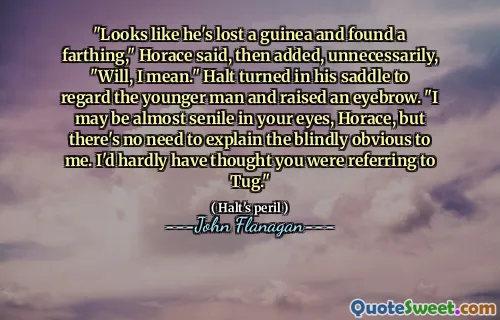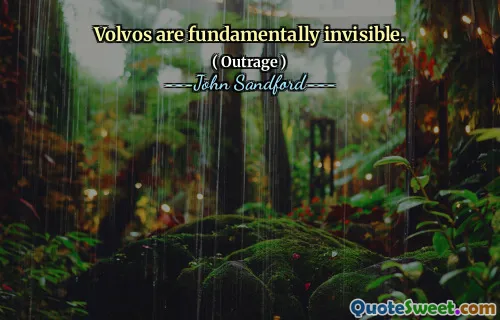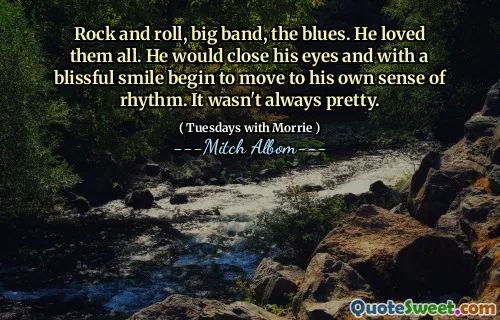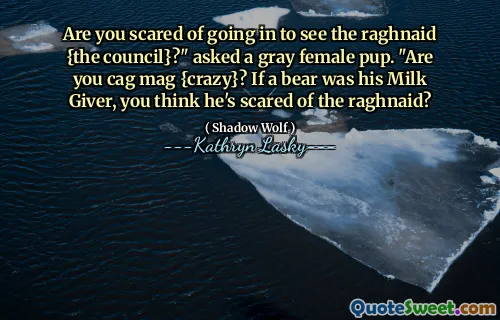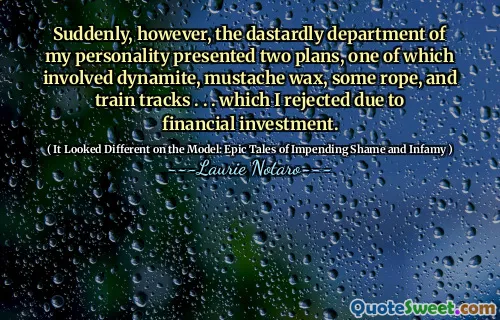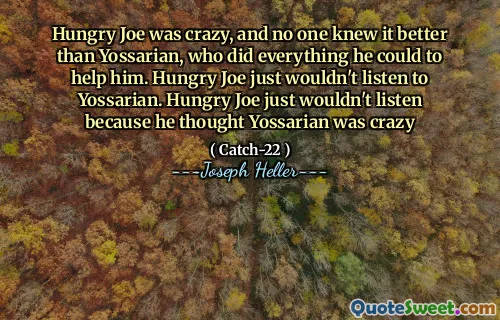
"Looks like he's lost a guinea and found a farthing," Horace said, then added, unnecessarily, "Will, I mean." Halt turned in his saddle to regard the younger man and raised an eyebrow. "I may be almost senile in your eyes, Horace, but there's no need to explain the blindly obvious to me. I'd hardly have thought you were referring to Tug."
This exchange between Horace and Halt showcases a delicate interplay of wit, perception, and respect between two individuals who clearly share a strong rapport. Horace's initial comment, "Looks like he's lost a guinea and found a farthing," metaphorically expresses a situation where someone has seemingly suffered a significant loss only to gain something of comparatively lesser value. His immediate clarification, "Will, I mean," suggests a sensitive awareness of the names involved and perhaps a subtle effort to soften the remark or direct it responsibly.
Halt's response is equally telling, reflecting a sharp intelligence and an unwillingness to accept condescension lightly. By stating, "I may be almost senile in your eyes, Horace, but there's no need to explain the blindly obvious to me," he gracefully reasserts his mental acuity while maintaining a tone of camaraderie and gentle reproach. The mention of Tug as an unlikely referent emphasizes their shared understanding of character assessments, further enriching the dialogue's depth.
The quote encapsulates themes of respect despite hierarchical or age differences, the balance between teasing and sincerity, and the nuanced understanding that comes from close relationships. In a broader sense, it highlights how language and subtle eavesdropping can reinforce bonds or challenge perspectives without causing offence. This kind of interaction invites readers to appreciate not just what is said explicitly but also the layers of meaning beneath, reflecting the richness of interpersonal dynamics. Within the context of "Halt's Peril," such moments add texture and authenticity to the characters, making them relatable and memorable.
